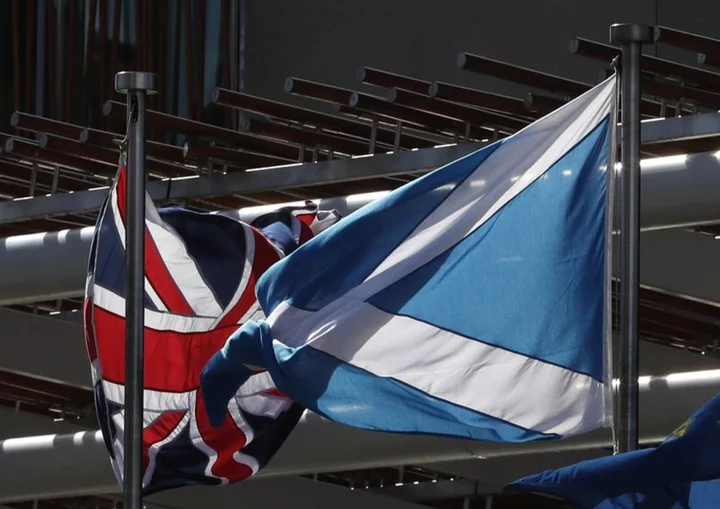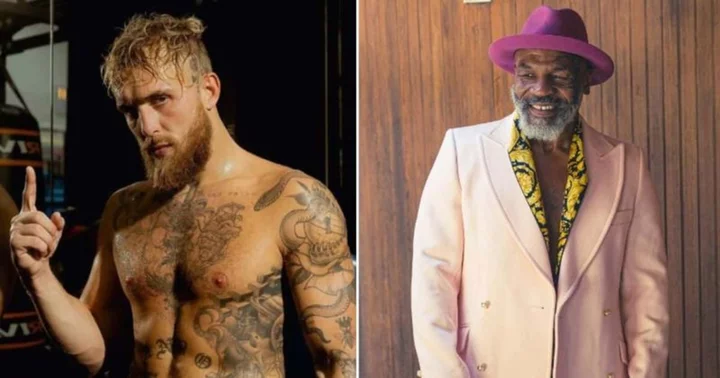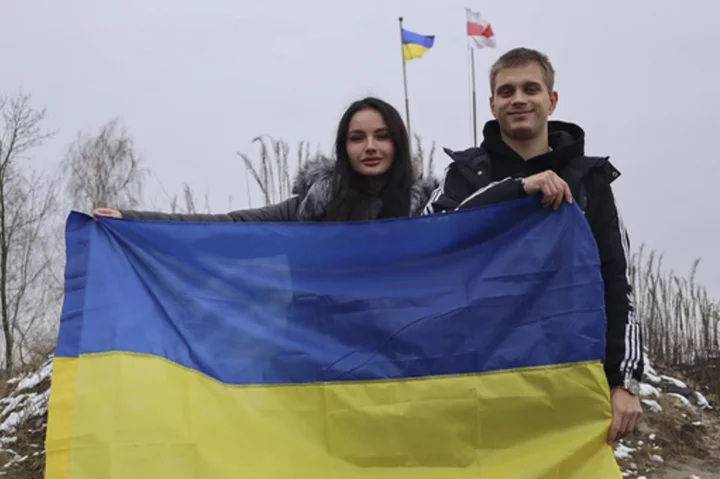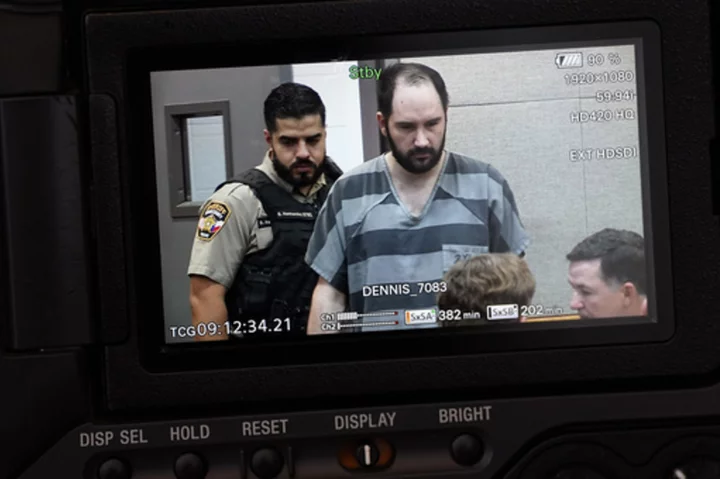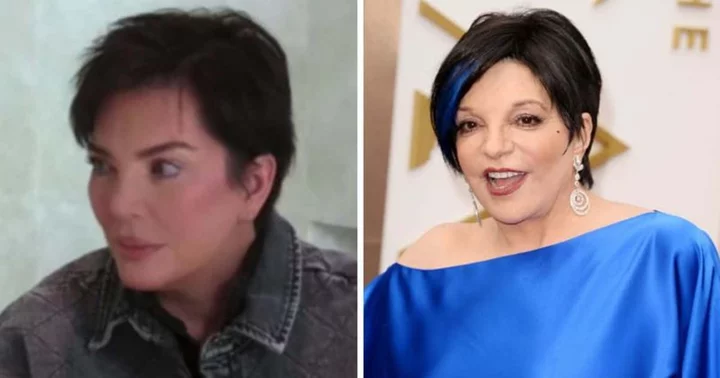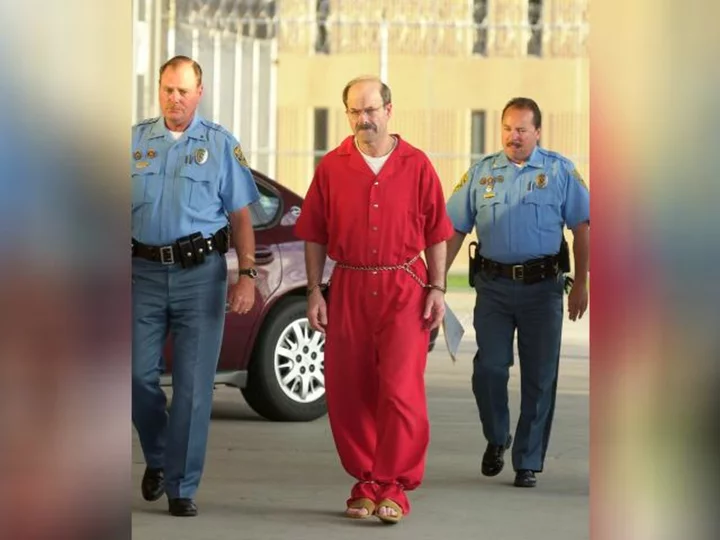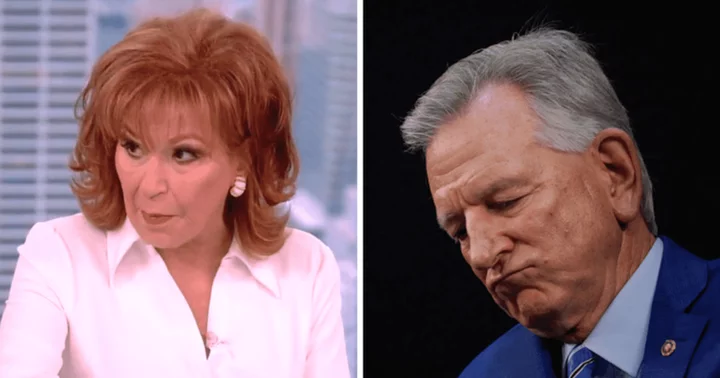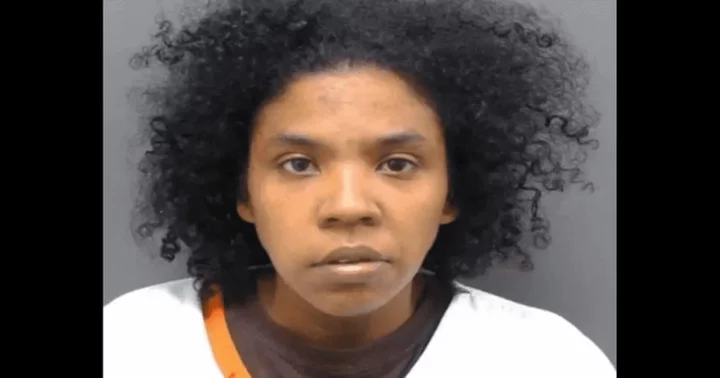By Kylie MacLellan
LONDON (Reuters) -Former Scottish First Minister Nicola Sturgeon was arrested on Sunday in connection with a Police Scotland investigation into the Scottish National Party's funding, her spokesperson said.
The police investigation is looking at what happened to more than 600,000 pounds ($750,000) raised by Scottish independence campaigners in 2017, which was supposed to have been ring-fenced but may have been used for other purposes.
"Nicola Sturgeon has today, Sunday 11th June, by arrangement with Police Scotland, attended an interview where she was to be arrested and questioned," a spokesperson for Sturgeon said.
"Nicola has consistently said she would co-operate with the investigation if asked and continues to do so."
Earlier, Police Scotland said on Twitter a 52-year-old woman had been arrested as a suspect in connection with the ongoing investigation into the funding and finances of the SNP.
"The woman is in custody and is being questioned by Police Scotland detectives," Police Scotland said. "As the investigation is ongoing we are unable to comment further."
The arrest of Sturgeon, who stepped down earlier this year, is deeply embarrassing for the SNP, which campaigns to end Scotland's three century political union with England.
"These issues are subject to a live police investigation. The SNP have been cooperating fully with this investigation and will continue to do so however it is not appropriate to publicly address any issues while that investigation is ongoing," an SNP spokesperson said.
In April, Sturgeon's husband, Peter Murrell and the party's then treasurer were both arrested and then released without charge pending further investigation as part of the same inquiry.
A the time of Murrell's arrest, police carried out a lengthy search of the couple's home in Glasgow, which was sealed off with blue and white police tape.
Sturgeon, Scotland's longest serving leader of its semi-autonomous government, caught the political world by surprise when she announced her resignation in February, saying she had become too divisive to lead her country to independence.
(Reporting by Kylie MacLellan and Andrew MacAskillEditing by Alex Richardson and Frances Kerry)

